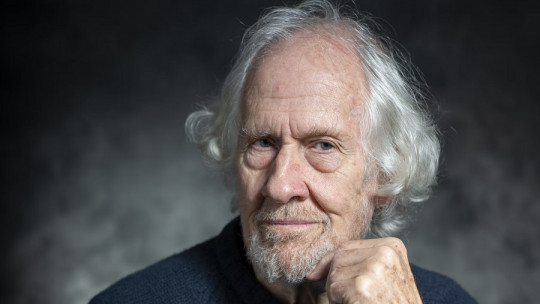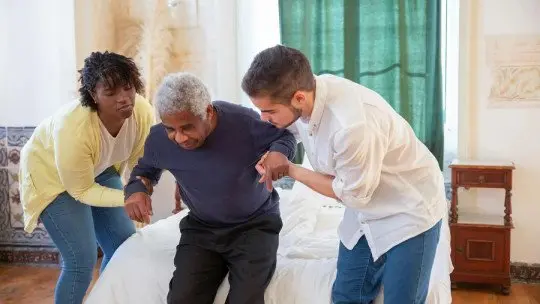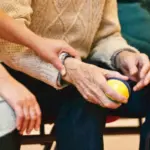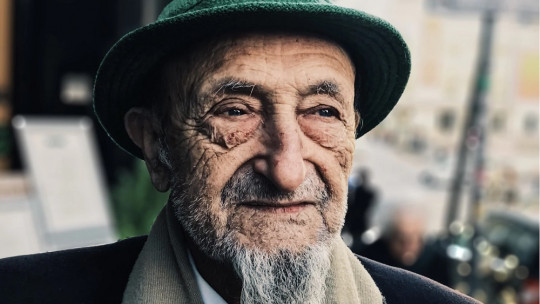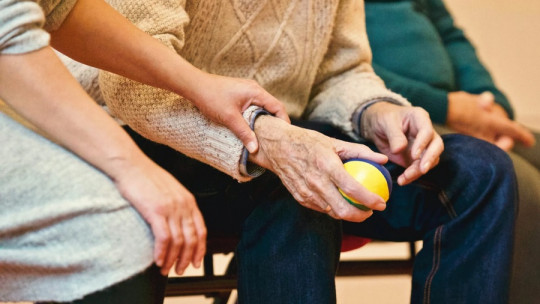
Caring for the elderly has become an increasing need in direct relation to the progressive aging of contemporary Western societies.
This care is necessary in cases such as Alzheimer’s or other neurodegenerative or chronic diseases that make it essential that the person be cared for for a large part of the day or permanently, but it can even become necessary in older people who lose their cognitive abilities. affected by a specific disease, beyond the natural wear and tear that comes with age during old age.
However, it is often overlooked that these tasks also affect those who put their effort and time into them. That is why It is useful to know what caregiver syndrome consists of, and the causes of the fatigue it causes.
What are the main causes of caregiver fatigue?
In people who are dedicated to caring for the elderly, the so-called “caregiver syndrome” or caregiver fatigue may appear, a psychological alteration associated with an intense physical bond (through work and objective care) and emotional bonding (through emotional bonding). and empathy) with the patient, and that It manifests itself in a series of symptoms that progressively and decisively affect your mental health.
Some of the symptoms of caregiver syndrome tend to be physical and psychological wear and tear due to accumulated fatigue, stress crises, generalized anxiety, a feeling of being overwhelmed by circumstances that relegate one’s own mental health to the background, and also depression in the most severe cases.

Besides that, also frustration or a feeling of inability to help the patient usually appears as well as helplessness, anger and social isolation, because the person ends up spending less time on their private life and being with their loved ones.
To better understand the particularities of this problem, let’s see what are the most relevant causes of caregiver fatigue in the cases of those who care for the elderly, especially if this is done due to family ties with the person who needs support.
1. Problems differentiating other people’s health from your own
Caregiver fatigue generally appears when the person becomes so involved in the health of an elderly patient that they end up neglecting their own health, which ends up causing serious problems on an emotional, physical and social level for always having your attention focused on the needs of the elderly. In the end, your health problems as an older person tend to be much more apparent and “eye-catching” than your own; They are more qualitative losses of quality of life, and not so quantitative or easy to overlook.
The impossibility of drawing a line that delimits her functions as a caregiver to care for herself and her loved ones is an essential characteristic of this type of syndrome, a phenomenon that ends up making it possible for the caregiver to live permanently caring for the patient without worrying about any other area of care. life.
2. Feeling of guilt
The feeling of guilt is another of the most common causes of the appearance of caregiver syndrome, and consists of the belief that one’s own inactivity will cause the illness or death of the person in charge to worsen.
It is precisely this feeling of guilt that makes it possible for the person to dedicate themselves fully and tirelessly to the care of the sick person, for fear that a single distraction or inattention will have fatal consequences in the patient’s life.
3. Lack of assertiveness
Assertiveness is the ability that allows us to defend our own point of view and our personal ideas, always respecting others, in a non-invasive way and without hostility,
This ability is essential to correctly relate to our environment; However, some people who present caregiver fatigue have true assertiveness deficits, which prevents them from setting limits regarding their work.
In addition to that, the lack of assertiveness also results in the person not knowing how to say “no” in situations in which they do not agree related to their work as a caregiver.
On the other hand, Lack of assertiveness is usually associated with low self-esteem and the feeling that one has to work hard to compensate for one’s own incompetence are also classic mental states in people with caregiver fatigue.
In these cases, they usually have a very negative view of themselves, which becomes a self-destructive spiral in which the person progressively loses their self-love and their ability to find something positive in themselves.
4. Unrealistic expectations
Having a vision that is distant from reality during the care process, as well as unrealistic expectations, are also traits that are related to caregiver syndrome or caregiver fatigue.
The majority of people who act as caregivers for the elderly do so informally, that is, they are not professionals, which is why they often They often have limited and unrealistic knowledge about how care works and what expectations we can have.
This happens, for example, when we believe that it is normal for our care to “cure” an elderly person who has an illness, something that often does not happen.
5. Inability to ask for help
Some people who are dedicated to caring for an elderly person They often have real problems recognizing the point at which to ask others for help.
This situation can occur, for example, in the case of neurodegenerative diseases, when the informal caregiver, who is usually a family member, assumes that no matter what happens, you have to continue doing what you have been doing for months to care for the elderly person, without asking for help. external.
6. Distress due to social pressure
The feeling of anguish in the face of social pressure and the idea of “what will they say” If you are not caring for that person most of the time, it is also a characteristic feature of caregiver fatigue.
Again, this anxiety has to do with a feeling of inability and the belief that any failure in caring for the person will cause serious consequences and even death.
7. Lack of knowledge about how to take care of yourself
Another of the most important causes, combined with the others, is the simple lack of knowledge about what is necessary to take care of oneself and about what should be done to prevent physical and/or mental health problems in oneself.
For example, sleeping little or having little free time to rest can also cause caregiver fatigue in many cases, but there are many people who consider that those hours of the week are “lost hours” that could be used a more productive way by dedicating yourself to all types of tasks.
In general, Caregivers are strongly recommended to sleep 7 to 8 hours a day and always have a few hours of rest in the middle of caring for the elderly.
The healthy lifestyle habits that a caregiver must maintain to avoid a state of fatigue are, in addition to eating, sleeping well and having good hygiene, regularly engaging in physical activity with the aim of achieving good physical and mental health.
In addition to that, it is also advisable to do fun activities and hobbies to rest from time to time, such as watching series, going to the movies or taking outdoor excursions.
- Related article: “The importance of healthy habits for psychological balance”
8. Break up with friends and family
People with caregiver fatigue They end up breaking social relationships with their closest circles, both at the family level and among friends, due to lack of energy and time. And this contributes to the vicious circle of dependency, since a good part of the incentives to break with that dynamic in the short term are eliminated.
That is why it is highly recommended to maintain social contact with those closest to you whenever possible and on a weekly basis, with the aim of having a higher quality of life, happiness and energy.
Do you want to have professional psychological assistance?
If you need to start a psychotherapy process to overcome an emotional or behavioral problem, contact our team of professionals.
In Psychotools We can assist you in person or by video call.

